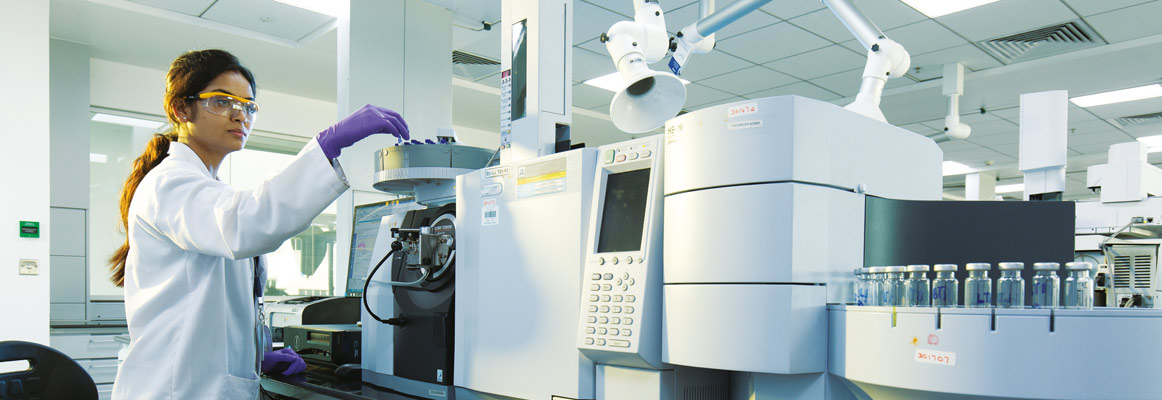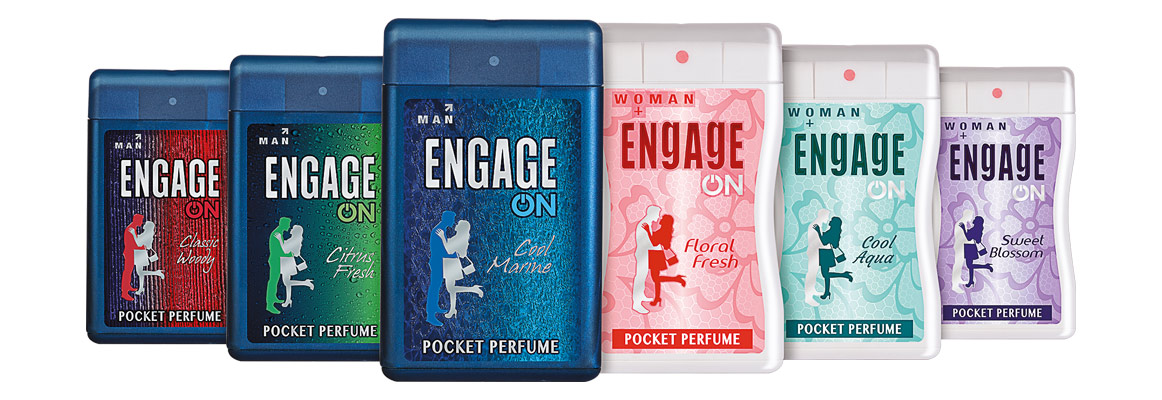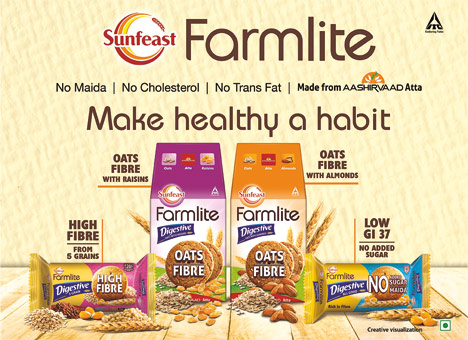 Environment
Environment Economic
Economic

Our uncompromising commitment in providing world-class products and services to satisfy customers on a consistent basis is rooted in respect for safety of our customers/ consumers. Given ITC's presence in the FMCG and Hospitality sectors, its products and services reach out to a large number of consumers. The Company has stringent processes and systems to ensure that all products and services are in compliance with relevant regulatory requirements. In addition, product and service attributes are constantly evaluated against international standards and best practices. This is an integral part of the Company's approach and all efforts are made to ensure that there is no deviation on this account.
ITC's commitment towards ensuring compliance with relevant standards of health and safety commences at the design stage. Appropriate health and safety elements across procurement, manufacturing and delivery are identified and evaluated, based on which control measures are implemented as necessary. Global developments in health and safety are also reviewed constantly to provide appropriate insights. This is supported by comprehensive research and testing facilities at the ITC Life Sciences & Technology Centre, whose laboratories conform to ISO/IEC 17025 and are certified by National Accreditation Board for Testing and Calibration (NABL). Manufacturing units and hotels have state-of-the-art facilities and technology as well as internationally benchmarked quality management systems. These are constantly reviewed to keep them contemporary and relevant. The quality performance of third party manufacturing facilities is also monitored on a daily basis.
The summary of systems and initiatives across some of ITC's Businesses is presented below:

As an organisation committed to high standards of transparency and good governance, ITC's Business operations comply with every relevant law of the Nation. Systems have also been put in place to ensure compliance before the launch of any new category or product.
A regular customer feedback system forms an integral part of ITC's Businesses where there is direct interface with customers. The process followed by ITC's Hotels Business with respect to consumer feedback is illustrated below.
In the case of FMCG products, consumers are provided several communication channels like e-mail, telephone number, website address and feedback forms to enable them to contact the relevant Business. Processes are laid down to ensure that consumers are provided with responses on their feedback in a timely manner. For food products, all information about ingredients and nutrition of products is published on the product packaging as per relevant statutory requirements.
In the Information Technology Business, formal mechanisms are in place to measure customer experience. The Customer Service Satisfaction Survey is an annual check on the robustness of the engagement, culminating in a Customer Experience Index. The survey is conducted amongst Chief Executives and Senior Management, and is based on a structured questionnaire customised for the stakeholder. Multiple parameters and business outcomes are measured including satisfaction, loyalty, advocacy and value for money. The outcomes and insights from the survey, drive customer engagement and service delivery improvement initiatives at the organisation, geography, business unit and account level.
Customer feedback for B2B businesses like Agri Business and Packaging and Printing, is obtained through different activities. For example, Agri Business has pre-season engagement with customers, client visits and engagement of the Divisional Management Committees with major customers. Given the nature of the business, claims due to rejections on account of quality are a valuable indicator of customer dissatisfaction. Products sold by the Agri Business Division on a B2B basis are labelled as per the customer requirements on quality, shipping marks or importing country labelling requirements. Business also provides phytosanitary certificates, surveyor quality and quantity reports, Chamber of Commerce certificates, etc., as necessary.
ITC's Board approved Policies on Sustainability supplemented by a 'Code of Conduct for Vendors and Service providers' provide the structure for addressing traceability within the supply chain and also the sustainability aspects therein, which are detailed in the 'Supply Chain' section of this Report. In Foods Business, over 90% of the vendors for processed raw materials like flavours, seasoning, colour, emulsifier and other special ingredients have already provided acceptance of ITC's Code of Conduct for Vendors and Service providers demonstrating their commitment to comply with applicable laws and contribute to sustainable development. In Foods Business, wheat constitutes around 49% of the total raw material procurement value and is sourced through the e-Choupal platform of ITC's Agri Business thereby ensuring 100% traceability to the origin.
 All Businesses/Divisions of ITC have
established rigorous systems, procedures
and review mechanisms to identify and
comply with the laws and regulations
concerning marketing communications. In addition, ITC has put in place a dedicated
consumer response cell in order to answer
any queries on products.
All Businesses/Divisions of ITC have
established rigorous systems, procedures
and review mechanisms to identify and
comply with the laws and regulations
concerning marketing communications. In addition, ITC has put in place a dedicated
consumer response cell in order to answer
any queries on products.
ITC follows standard operating procedures to ensure that its marketing communications are in accordance with voluntary codes adopted by each business as well as applicable statutes. Marketing and Advertising Communications of all ITC's Businesses are vetted by the internal legal team for compliances. Such process compliances are validated periodically by internal audit department. The Company's Consumer Goods Businesses adhere to voluntary and legal codes of conduct and follow the ASCI (Advertising Standards Council of India) Code for all marketing communications. Marketing communications for ITC's Hotels Business is governed by selfregulation and guided by the Indian Society of Advertisers (ISA) rules and guidelines.

Maintenance of customer privacy is relevant primarily for ITC's Information Technology and Hotels Businesses, both of which have well established systems and procedures for ensuring zero non-compliance.
Network Architecture and Information security controls of the Company's Information Technology Business under ITC Infotech Limited are driven by industry best practices. The Business has drafted a privacy policy in line with the IT Act, 2000, that covers all aspects of data privacy with respect to sensitive information. The Business has also formulated an Information Management policy, which caters to the IT security aspects of the ISO 27001 ISMS framework. The IT operations arm of ITC Infotech Limited is ISO 27001 certified for its business processes to deliver IT services and projects. Documented procedures are available and practised to grant physical access to information, e.g. the defined and restricted access rights to IT Room/Server Room and User Access Management based on ISO 27001 and as agreed with customers. The Business has also put in place measures at various control areas in order to meet customers' requirements for data security. These include desktop access, server access, network access, operating system, application security, data transfer, penetration testing, etc. Clear guidelines are provided for data backup, retention periods, the media on which backups have to be maintained and storage at remote location.
In addition, stringent risk assessments are carried out to identify vulnerabilities and threats to assets and the controls that need to be put in place.
ITC's Hotels and Information Technology Businesses received no complaints regarding breach of customer privacy or loss of customer data in 2016-17. For the year the average WoW Ratio (Guest Satisfaction Index) for the Hotels Business was 91.60%.
All Businesses/Divisions of ITC have well established systems, procedures and review mechanisms to identify and comply with the laws and regulations concerning their products and services.
ITC has established systems wherein every Business and Corporate Department has to submit a monthly statutory compliance report to the CMC/Board on all business regulatory, product specific, finance/revenue related, personnel related, technical/process related and environment related statutes and other applicable laws and regulations. This is done on the basis of updated checklists backed by appropriate monitoring and control systems maintained by each Unit/Business/ Corporate function.
As per this system, no incidents of noncompliance were reported during 2016-17.
Recognising the unique construct of ITC in terms of its strong presence in agriculture, Branded Packaged Foods and Personal Care Products Businesses, a convergence of R&D capabilities is being leveraged to deliver future products aimed at nutrition, health and well-being. In this context, Life Sciences & Technology Centre (LSTC) has created a Biosciences R&D team to design and develop several long-term research platforms evolving multi-generation product concepts and associated claims that are fully backed by scientific evidence for the Branded Packaged Foods and Personal Care Products Businesses. Multiple value propositions have been identified in the area of functional foods, which are being progressed to products of the future with strong scientifically validated claims via clinical trials. Similar advances have been made in the area of personal care products. In addition, LSTC has evolved a strategy in building a new value chain called, 'Nutrition' with a special focus on 'Indianness' and 'health and well-being' founded on the basis of Value Added Agriculture (VAA) and Medicinal and Aromatic Plants. The initial activities related to VAA have already commenced with a focus on soya.
Following are some of the specific areas that LSTC has been working on: